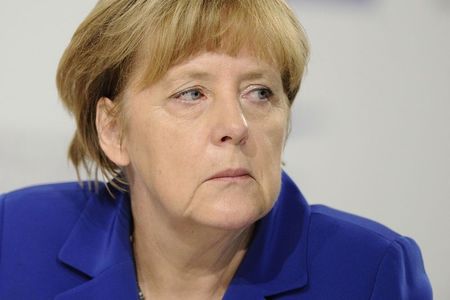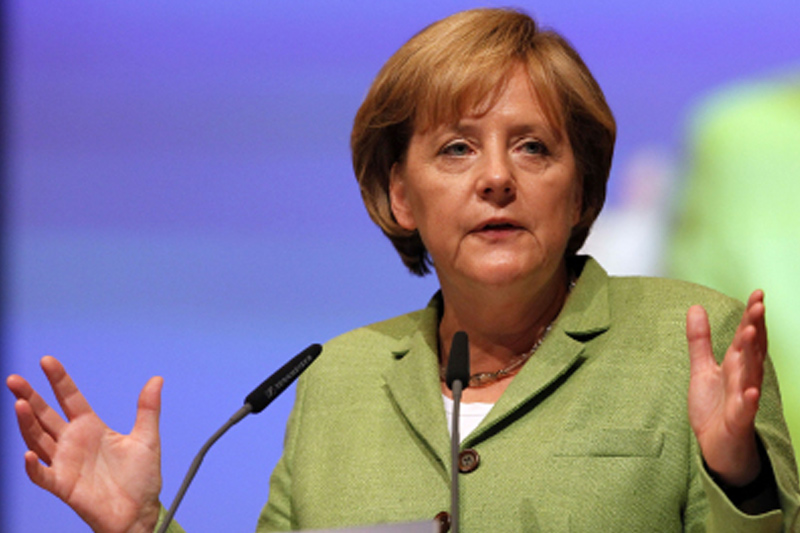BERLIN (Reuters) - The German government has no plans to abandon its target of reaching a zero public deficit next year, Chancellor Angela Merkel's spokesman said on Monday in comments echoed by leaders of her coalition.
"For the government and for the country our efforts to have a balanced budget next year are of high value," Steffen Seibert said, adding that Berlin was conscious that global economy had cooled down and that German exports would feel the impact.
Both parties in the 'grand coalition' restated their support for the so-called "black zero" - as the balanced budget is known - after Germany appeared increasingly isolated in its focus on fiscal consolidation, rather than measures like investment to boost growth, at this weekend's IMF meeting.
Top officials from Merkel's Christian Democrats (CDU) and their Social Democrat (SPD) coalition partners tried to downplay comments from SPD deputy chairman Ralf Stegner, who represents the left of the party, that it was "no Social Democrat zero".
Peter Tauber, general secretary of the CDU, echoed Finance Minister Wolfgang Schaeuble comments in Washington that Germany was not heading towards a recession, despite concerns that a 0.2 percent second-quarter contraction could be followed by a third-quarter contraction that would signal a technical recession.
Tauber said Germany's situation was "still good" and added: "We shouldn't let ourselves be talked into a downward spiral."
The aim of a balanced budget with no new debt was valid, he said - getting the backing of his SPD counterpart Yasmin Fahimi.
"I want to say quite clearly that the SPD is not in favour of changing course when it comes to the 'black zero'," Fahimi said, adding that "at the moment there is no reason to sway from ... budget consolidation".
Some media have warned that the zero deficit could become a "fetish" for the government, arguing for a policy rethink in the light of third-quarter data showing exports crumbling to levels not seen since the height of the financial crisis in 2009.

Serving and former policymakers put pressure on Schaeuble at the International Monetary Fund talks to relax his insistence on painful structure reforms by euro zone partners like France and Italy and to invest more in infrastructure and education.
(Reporting by Stephen Brown, Andreas Rinke and Alexandra Hudson; Writing by Stephen Brown; Editing by Toby Chopra)
